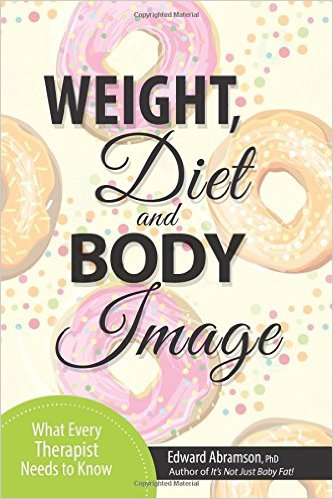Weight, Diet, Activity and Body Image: The Psychology of Weight Control
Overview: After a brief discussion of the scope of the obesity epidemic and the medical, surgical and dietary methods typically used for weight loss, the presentation focuses on the psychology of eating (it’s not just hunger), overcoming exercise avoidance, and developing a healthy body image regardless of weight. Specific methods will be described, guidelines for their implementation will be presented, and questionnaires and handouts suitable for use with clients will be offered.
Is Your Client a Food Addict?
Overview: Many clients identify themselves as food addicts, chocoholics, junk food junkies, or other terms suggesting an addictive process responsible for their weight problems. Recent research suggests a similarity between food and addictive drugs in dopamine reward system responses yet the clinical utility of “food addiction” remains unsettled. In this workshop Dr. Abramson will give a brief overview of this research and offer assessment tools and suggestions for treating clients who are self-identified as food addicts.
Breaking Free From Emotional Eating
Overview: While the most serious type of emotional eating, binge eating, is a central feature of eating disorders, unnecessary eating can be a response to ordinary emotional upsets caused by daily stressors or even watching your favorite football team lose a game. This workshop will describe different patterns of emotional eating, how it develops, assessment tools, and practical treatment methods.
Preventing Childhood Obesity
Overview: With childhood obesity reaching epidemic proportions in the U.S., it’s been suggested that this could be the first generation which will have a lower lifespan than previous generations. After a brief review of epidemiology and the medical and psychological consequences of childhood obesity, Dr. Abramson will describe practical methods for professionals to prevent and treat childhood obesity.
